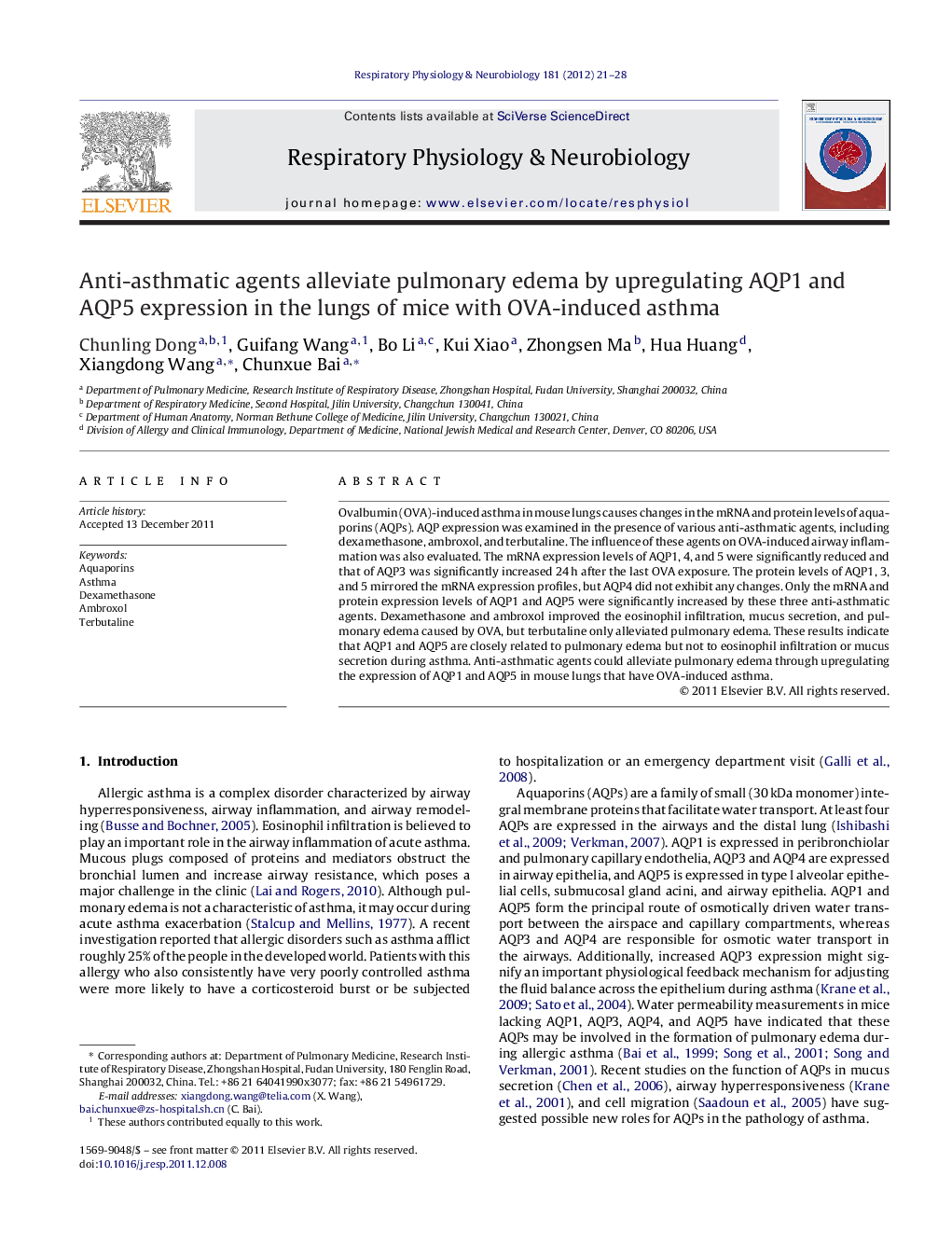| Article ID | Journal | Published Year | Pages | File Type |
|---|---|---|---|---|
| 2847339 | Respiratory Physiology & Neurobiology | 2012 | 8 Pages |
Ovalbumin (OVA)-induced asthma in mouse lungs causes changes in the mRNA and protein levels of aquaporins (AQPs). AQP expression was examined in the presence of various anti-asthmatic agents, including dexamethasone, ambroxol, and terbutaline. The influence of these agents on OVA-induced airway inflammation was also evaluated. The mRNA expression levels of AQP1, 4, and 5 were significantly reduced and that of AQP3 was significantly increased 24 h after the last OVA exposure. The protein levels of AQP1, 3, and 5 mirrored the mRNA expression profiles, but AQP4 did not exhibit any changes. Only the mRNA and protein expression levels of AQP1 and AQP5 were significantly increased by these three anti-asthmatic agents. Dexamethasone and ambroxol improved the eosinophil infiltration, mucus secretion, and pulmonary edema caused by OVA, but terbutaline only alleviated pulmonary edema. These results indicate that AQP1 and AQP5 are closely related to pulmonary edema but not to eosinophil infiltration or mucus secretion during asthma. Anti-asthmatic agents could alleviate pulmonary edema through upregulating the expression of AQP1 and AQP5 in mouse lungs that have OVA-induced asthma.
► Influence of anti-asthmatic agents on AQP expression in lungs of mice with asthma. ► AQP1 and AQP5 expression was upregulated by three anti-asthmatic agents. ► Anti-asthmatic agents alleviate pulmonary edema by upregulating AQP1, 5 expression.
